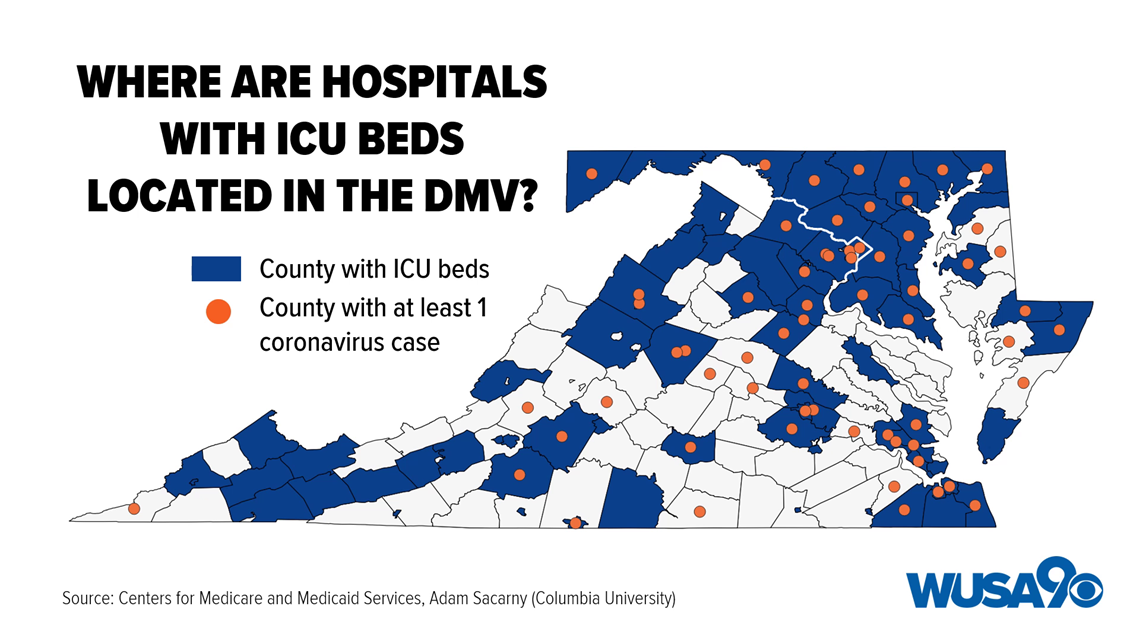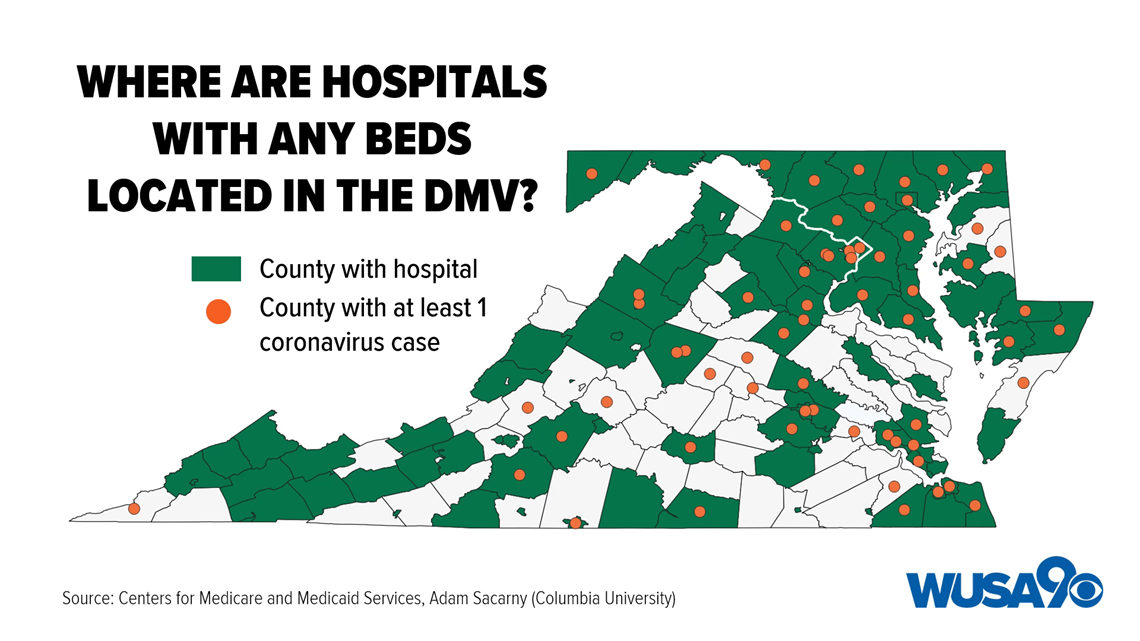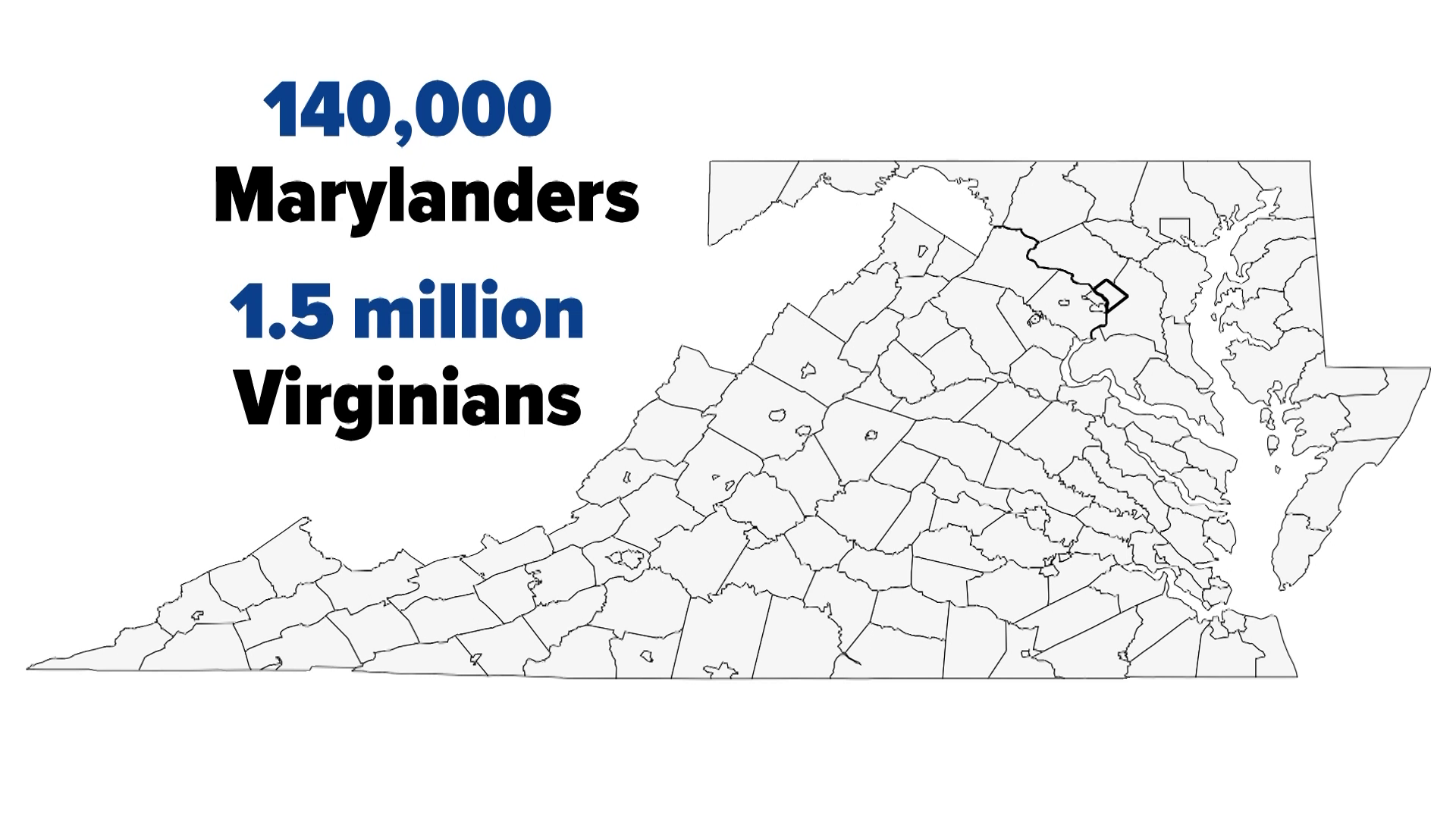WASHINGTON — More than 140,000 Marylanders – and more than 1.5 million Virginians – live in a county without any ICU beds, according to an analysis of hospital data conducted by WUSA9.
Those numbers include more than 33,000 Marylanders and more than 400,000 Virginians over the age of 60.
WUSA9 analyzed data from the annual cost reports hospitals file with the Centers for Medicare and Medicaid Services. The data was compiled by Professor Adam Sacarny, at Columbia University’s Mailman School of Public Health.
The data shows that, as the coronavirus pandemic spreads in the DMV, Virginia and Maryland both have acute care deserts. They can be found in southwest and south central Virginia, and eastern Maryland, in counties like Caroline and Queen Anne’s.


In three counties in Maryland, and more than 60 in Virginia, there’s no hospital at all.
As of March 25, Maryland, D.C. and Virginia had reported more than 1,000 combined cases of the coronavirus, including at least 19 deaths. So far, cases of coronavirus have been reported in 16 counties and independent cities in Virginia and Maryland with no ICU beds.


WUSA9 wanted to know what contingencies are in place if local hospital facilities in those areas are overwhelmed by coronavirus patients needing more intensive treatment.
On Wednesday, Virginia Gov. Ralph Northam said his administration was preparing for those possibilities.
"This week, my team and I spoke with the Army Corps of Engineers," Northam said. "The Corps can build emergency hospital beds in sites that we identify for them."
Julian Walker, the vice president of communications for the Virginia Hospital & Healthcare Association, said there have been, as of March 25, 59 hospitalizations due to COVID-19 in the state. He said Virginia has approximately 2,000 ICU beds – but that it is "exploring a range of options" for establishing alternate care sites in case they're needed.
“The rapid rate of COVID-19 spread could strain the health care system’s existing capacity as it relates to supplies, facilities, and clinicians," Walker said. "That is why plans are being made in the event that temporary health care facilities and related staffing needs are required to meet Virginia’s medical treatment capacity if that becomes needed. While those plans are actively being developed for implementation, it is important to note that Virginia has not experienced widespread COVID-19 treatment capacity challenges at this time.”
In Maryland, a decline in surgeries due to coronavirus precautions has opened up additional bed space, according to Amy Goodwin, vice president of communications for the Maryland Hospital Association. Goodwin also said some hospitals are rearranging existing assets, and even beginning minor construction, to make more beds available.
Maryland Gov. Larry Hogan also said Wednesday that the state has been able to make 2,400 hospital beds available for potential coronavirus patients.
For those Marylanders who live in rural areas with limited numbers of ICU beds, Goodwin said the state’s strong hospital network will hopefully fill in gaps.
“Most rural hospitals in Maryland are connected to larger health systems,” Goodwin said. “And if not directly, they have strong working relationships – both from a clinical and a business perspective.”
Goodwin also said that, if the need to transport rural patients exceeds the capacity of EMS, the Maryland National Guard has been mobilized to safely transport patients.
RELATED: DMV Coronavirus Tracker: See where every reported COVID-19 case is in Maryland, DC, Virginia

